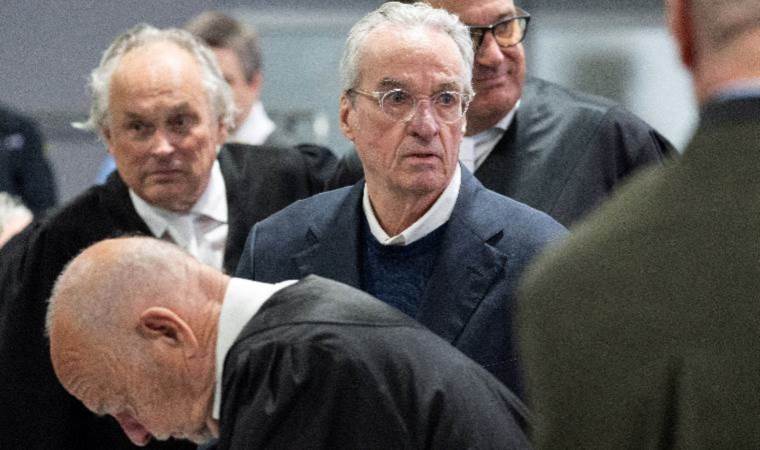Nine in Germany, accused of 'Reichsbuerger' coup plot, go on trial
A would-be prince, a former judge and parliamentarian, and retired military officers were among nine alleged conspirators who went on trial on Tuesday for a suspected "Reichsbuerger" plot to overthrow Germany's democracy.

Prosecutors say they were ringleaders in a terrorist conspiracy to topple the government and install property investor Heinrich XIII Prinz Reuss, scion of a now-throneless dynasty, as caretaker head of state.
The plot, exposed in 2022, has both captivated and stunned Germany, which prides itself on its economic might, stable institutions and consensus-driven politics, despite recent inroads by the far right.
The high-profile case, in a maximum-security courtroom on the outskirts of Frankfurt erected for the trial, is the second to open against members of a conspiracy suspected of involving at least 27 people.
The defendants who took their seats on Tuesday constitute what prosecutors say would have been political and military leaders of a plot to storm parliament and detain legislators to initiate their seizure of power.
"They knew their seizure of power would involve killing people," prosecutors wrote ahead of the trial.
The defendants have denied charges of terrorism and high treason.
Reuss, the central figure of the movement who prosecutors say hosted planning meetings at his hunting lodge in eastern Germany, entered court in a blue sweater and blue jacket over a white shirt and appeared to have lost weight since his arrest.
MONARCHISTS
Prosecutors say the defendants are adherents of the "Reichsbuerger" (Citizens of the Reich) belief system. It holds that today's German state is an illegitimate facade and that they are citizens of a monarchy which, they maintain, endured after Germany's defeat in World War One despite its formal abolition.
Security services say the conspiracy theory, which has parallels to the QAnon movement that fuelled the 2021 storming of the U.S. Capitol, has some 21,000 adherents nationwide.
"It is not about harmless nut cases, but about dangerous terror suspects," said Interior Minister Nancy Faeser.
Nine accomplices who prosecutors say would have imposed martial law after a putsch went on trial in Stuttgart last month.
Tuesday's defendants included former army officers Maximilian Eder and Ruediger von Pescatore, and former judge and far-right ex-parliamentarian Birgit Malsack-Winkemann.
Prosecutors say Malsack-Winkemann used parliamentary privileges to escort several co-conspirators around the Reichstag building in Berlin in a scoping exercise.
Eder told Stern magazine in an interview from prison that the parliamentary tour had been intended to find suitable locations to accost lawmakers over what he believed was their involvement in a child molestation ring.
The leading suspects are accused of seeking the backing of Russian officials, including during meetings at Russian consulates in Germany and in the Slovak capital Bratislava.
This reflected their belief that an "Alliance" of victor countries, including Russia and the United States, stood ready to support the resurrection of the real, submerged Germany that would replace today's post-World War Two republic.
The Russian embassy did not immediately respond to an emailed request for comment.
Prosecutors say the conspiracy had 500,000 euros in funds and had gathered over 100,000 rounds of ammunition.
